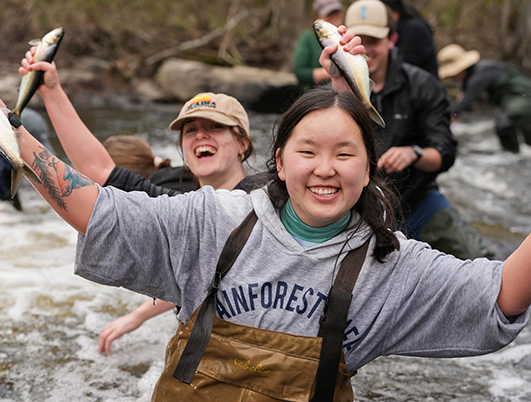ADvanced RLE Courses
Open to 2nd semester freshmen through seniors!
Sign-up for these courses through MaineStreet during general enrollment.
If you have questions, please contact the course faculty member.
Solving Real Problems for Humans
HTI 495.WHBL- Human-Centered Technology and
Design
Session Offered: Winter Term 2026 (2 weeks online + 1 week in-person)
Jessica Ricardi | Department of Communication Sciences and Disorders
Credits Earned: 3
Participants: Open to students majoring in Interdisciplinary Studies in Multimodal Interaction
Join the VEMI, BEaR, and HAL Labs in serious fun: this ARLE is serious work (it can and likely will shape your future research projects and career) BUT is also a chance to build relationships with other students looking to impact real people in real ways. You’ll collaborate with team members to design an experiment, collect human-subject data, and analyze and interpret findings to solve real-world problems that center around humans, technology, and inclusive design.

Chemistry of Carbon Sequestration
CHY 124.4001- General Chemistry II Lab
Session Offered: Spring Semester 2026, UMaine Machias Campus
William Otto | Integrative and Marine Sciences
Credits Earned: 3
Participants: Open to all majors
Carbon sequestration, crucial to ameliorate excess atmospheric CO2, will be a theme used to learn the underlying chemical concepts. Field experiments will be designed and executed to assess natural and impaired saltwater marshes.

Create and Observe Atomic Layers
RLE 250.0001 – Exp Exfoliation Graphene layers
Session Offered: Spring 2026
Dinh Loc Duong | Department of Physics and Astronomy
Fall credits: 1
Participants: Open to all majors
In this course, students will be introduced to a simple method to create atomic-thickness two- dimensional materials, the approach leading to the 2010 Nobel Prize in Physics, using UMaine’s state-of-the-art cleanroom and microscopy facilities. After training, students will create graphene layers, image their samples, and statistically determine the number of atomic layers fabricated.

Making Mathematics
MAT 300.0001- Topics in Mathematics
Session Offered: Spring 2026
Gilbert Moss | Department of Mathematics and Statistics
Credits Earned: 3
Participants: Open to first- and second-year students who have completed MAT 126, Calculus 1
This is a small class in which students will work closely together to explore some of the most beautiful phenomena in mathematics, specifically the remarkable patterns hidden in the interplay between the additive and multiplicative arithmetic of the integers. We will explore several topics in number theory showcasing the mysterious behavior of
prime numbers. Along the way we will frame questions, gather data, and propose explanations for the phenomena we observe.

May Term Wildlife Field Survey
WLE 250 – Wildlife field Experience
Session Offered: May Term 2026
Lindsay Seward and Erik Blomberg | Department of Wildlife, Fisheries, and Conservation Biology
Credits Earned: 3
Participants: Music Education majors only
Throughout this 10-day field course offered during May term, students will become immersed in the unique flora, fauna, and culture of Maine’s “Downeast” region. The course combines natural history, field methods, and community-building activities with an emphasis on science-based application fish and wildlife research principles to address management issues.

Explore Drug Decriminalization in Portugal
RLE 250- Reimagining Drug Policy
Session Offered: Summer 2026 travel course
Robert Glover | Department of Political Science; Karyn Sporer | Department of Sociology
Credits Earned: 1
Participants: Open to all majors
Dive in to Portugal’s groundbreaking approach to drug policy in this immersive study abroad course. Explore the county’s decriminalization model, public health strategies, and harm reduction efforts through lectures, field visits, and discussions with experts. Gain a deeper understanding of the intersection of law, health, and society while experiencing Portugal’s rich culture and history.

Supported by a generous grant from the Harold Alfond Foundation as part of UMS TRANSFORMS.


